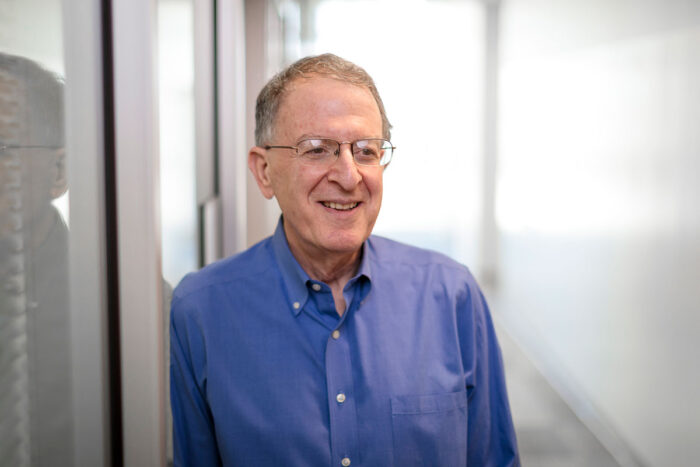Gordon wins Spain’s Asturias Award
Gut microbiome pioneer receives one of highest honors in Spanish-speaking world
 Matt Miller
Matt MillerJeffrey Gordon, MD, of Washington University School of Medicine in St. Louis, has won the 2023 Princess of Asturias Award for Technical and Scientific Research. Gordon is being honored for spearheading the discovery and understanding of the human microbiome, the vast collection of microbes that live in and on the body and play essential roles in health.
Microbiome pioneer Jeffrey I. Gordon, MD, of Washington University School of Medicine in St. Louis, has won the 2023 Princess of Asturias Award for Technical and Scientific Research.
The Asturias awards, among the most prestigious honors in the Spanish-speaking world, are presented annually in eight categories. The awards are designed to recognize exceptional scientific, technical, cultural, social and humanitarian work performed at an international level and in so doing honor the “heritage of humanity.”
Gordon is being honored for spearheading the discovery and understanding of the human microbiome, the vast collection of microbes that live in and on the body and play essential roles in health. This year’s recipients in the other categories include Oscar-winning actress Meryl Streep; celebrated author Haruki Murakami of Japan; and Olympic champion marathoner Eliud Kipchoge of Kenya.
Gordon, the Dr. Robert J. Glaser Distinguished University Professor and director of the Edison Family Center for Genome Sciences & Systems Biology, shares the research award with two other scientists, Bonnie L. Bassler, PhD, of Princeton University, and Peter Greenberg, PhD, of the University of Washington in Seattle. All three are being recognized for their contributions to the understanding of the fundamental roles played by communities of microbes in life on Earth.
The 2023 award winners will be honored Oct. 20 at a ceremony in Oviedo, in northern Spain. These awards were first established in 1980 and have been presented annually by the king of Spain. King Felipe VI once again will preside over this year’s ceremony and be joined by Queen Letizia and their daughter Leonor, princess of Asturias and honorary president of The Princess of Asturias Foundation.
Past recipients of the scientific award include physicist Peter Higgs, primatologist Jane Goodall, and biochemists Emmanuelle Charpentier and Jennifer Doudna, known for their discovery of CRISPR gene editing. Other past recipients of Asturias awards in various categories include Nelson Mandela, Stephen Hawking, Annie Leibovitz, Martin Scorsese, Francis Ford Coppola, David Attenborough and the United Nations International Children’s Emergency Fund (UNICEF).
Gordon’s work has transformed the understanding of gut microbes from a singular focus on individual disease-causing bacteria to a broader understanding of how whole communities of gut microbes play central roles in health and disease. For example, Gordon and his collaborators have shown how disruption of the development of the gut microbial community in infants and children can contribute to malnutrition, and how specific therapeutic foods — designed with knowledge of how they nurture beneficial gut microbes — can repair the microbiomes of children afflicted with malnutrition and help restore their healthy growth.






